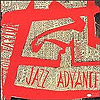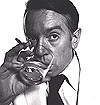Some Kicks | |

| Kicker Conspiracy Late Autumn upon us, which brings to mind early Fall. Mark E Smith's Fall, that is. The Fall of 'Kicker Conspiracy' and 'Wings', featuring the pulverizing drum-work of Karl Burns. Songs which featured more kicks than an edition of Match of the Day. Was a more vitriolic song about football ever committed to vinyl than 'Kicker Conspiracy'? "Under marble Millichip the F.A. broods/ On how flair can be punished". Still relevant, judging from England's line-up for the 'friendly' against Italy. Songs which held little back, all raucous energy, nicotine-fuelled fumbles, brooding bass-lines, Casio keyboard attacks. Listening to some of those lyrics, MES laying bare his obsessions in his uniquely exposed, witheringly ratchety double takes on language, they retain their mesmeric, hacksaw spikiness. K is for kick, which is precisely what those early line-ups achieved. A knee-jerk reaction, a deliberate movement in response to the doctor's hammer, a reflex test as unforgiving as sparring with the likes of Rocky Graziano. The kick inside 'Bingo Master's Breakout' or 'Totally Wired' is as much a response to chemical stimulus as physical effort of will. Why does the kick seem so appropriate for this decentred music, capable of throwing you off-kilter with Bruce Lee feats of concentrated intensity? The Fall had a mulish obstinacy, the bass-heavy clutter and intricate guitar designs backed up by drums which stomp and bray viciously. |

| Kurious Orange The kick as sudden onrush of energy, the orgasmic seizure from which the word 'jazz' was derived. It's peculiar how such a loaded term has become tamed and civilized anew, something which Louis Armstrong couldn't have predicted when playing in flophouses in New Orleans in the 1920's. Never mind, despite the dilutions (acid jazz, trad jazz, all that jazz…) the word is here to stay. Was Kubrick thinking of reinvigorating the term when he dressed his droogs in Clockwork Orange in Acker Bilk-style bowler hats? That's a film which plays with kicks in all their multiple facets too- Malcolm McDowell and friends laying into their victims with fast, jerky movements of leg against object. I find the film a little too studiously misanthropic, playing the violence and thuggery card for kicks when Losey did it with so much bravura in The Criminal. There the spare, precise alliance of jailhouse claustrophobia and uneasy listening came courtesy of Dankworth's chilling score, with the presence of scowling Patrick Magee as the prison warden, who would play the Anthony Burgess writer figure in Clockwork Orange. |

| Split Kick Horace Silver is widely regarded as a major figure in the development of hard bop. As a recent album title of his puts it, he's the hardbop grandpop. I do prefer listening to other people's recordings of his compositions, though. There's something too technically accurate about some of his own work, whereas 'Senor Blues' leaps into another gear in the hands of Anita O'Day or Mark Murphy. Hard swinging, vertiginous control, with no fear of taking the song into more nuanced territory than the flat pastel shades of the original. There's the story of how Silver served his apprenticeship in Stan Getz's early quartet line-up of 1950. These are hard, gem-like performances, with Silver on piano audibly restrained in the presence of his master's sax. Getz drives through Silver's 'Split Kick' with alarming fearlessness, testing the pedigree of pianist and the other quartet members. 'Split Kick' is an elusive, abrasive title, signalling that something is wrong. You could liken the effect to the split infinitive, someone's taking the language of jazz and bending the rules to fit an altogether more subjective, truer vision of musical expression. In a split second Getz can take a musical idea and stretch it into a solo, then roll up the material and set light to it. Up up and away in a puff of smoke. |

| Rick Kick Shaw Early Cecil Taylor now, the period of Jazz Advance and Love For Sale. At this stage Taylor's iconoclasm was already in place, a sure footing on which to rewrite the rulebooks. Cole Porter's songs are nourished on the rarest combination of dandy sophistication and wry observation. He got no kick from champagne, but could detail his tastes in songs which possess the punch of the well-told vignette. Taylor knew that the truest form of tribute lies in demolition and piecemeal reconstruction. Not afraid to tackle Porter head on, he takes the well-worn standard 'Love For Sale' and encrusts it with newly-forged plating, so that the airy lightness of countless performances is replaced with his own unmistakable turbulence, the armour-plated truculence he needed to develop in order to survive endless drudgery. There's no surer vehicle for his ideas and passions than the shaping and development of music as a gymnastic event. Hands, arms, legs, even hair merge together with the instruments they play, and emerging from these endeavours are such pieces as the great 'Rick Kick Shaw' on Jazz Advance. Here is musical improvisation which takes you from A to B with little fanfare, all lithe bodywork and jagged explosions of kinetic energy. The album cover features snatches of newspaper advertising, teeming with the unadorned bristles of city life. People wanting out, down and out or on the up and up. Across these cuttings, splashed in gaudy Kremlin red letters, the words Cecil Taylor Quartet and Jazz Advance, with an abstract red shape coiled around them, stark lines branded on the waste matter of old words. If this was yesterday's news, it now possesses a magnetic force, used as the basis for music which acts as a documentary snapshot of Cecil's travails in the studio. 'Rick Kick Shaw' is a suitably hard-nosed instance of this, with Taylor making his points and not outstaying his welcome, embracing the kind of vehement individualism Richard Stark, aka Donald E. Westlake, honed to angular perfection in such pulp as Point Blank, The Outfit and The Split. Taylor's title nods and winks in several directions at once- the comparison with Cubism suggests itself, but would be all too easy. Here the fragmentation is a little less predetermined, far more vulnerable than Pablo's petulant brushwork. Similarly, the Shaw alluded to in the title is as shrouded in mystery as any of Mark E. Smith's nondescript heroes, Mr Pharmacist, the Marquis Cha Cha or John Quays. Or is it a rickshaw he's sculpting in sound? The rickshaw in opposition to petrol-driven motor vehicles, now there's a thought. Or is this the same Shaw alluded to in Dizzy Gillespie's Shaw 'Nuff? Or was Rick Shaw one of his former employers, keeping Cecil under the cosh of long hours and poor pay, thoroughly deserving this musical payback, a well-aimed kick in the groin? Another aspect of Taylor's playing which commands attention is his tunnel vision. It's as if, by beating on the panel of ivory and ebony keys for long enough, he'll dig his way to freedom, with a kind of Mr Magoo obliviousness to trivial distractions. |

| The Toreador and the Bull The kicking bull, so often invoked in literature from Hemingway onwards. Two more examples sprang themselves upon me recently, both of them possessing the threat and instant gratification of a carefully laid steel mousetrap. James Dean as Jim Stark in Rebel Without a Cause, whose father is played in the film by Mr Magoo himself Jim Backus, is carefully defined as a teenage bullfighter by those around him. Corey Allen goads him with cries of chicken and then toreador during the great knife fight sequence. Later Dean wears his red jacket as a bullfighter carries his rag, flashing defiance and chaotic emotions more tellingly than any amount of huff and puff other actors might have brought to the part during the Chicken Run cliff-edge drive. The advantage of having a copyright library close at hand means I've been able to track down some of the fabulous Ken Tynan's now mostly out-of-print output. Things like his cinema writings: his article on Louise Brooks is called "The Girl in the Black Helmet", and his wonderful pen portraits of the likes of Humphrey Bogart, depicted as a latter-day Stoic. Then Bull Fever, his book on bullfighting, la corrida, presented with verve and unflinching identification with the blood ritual and balletic poise and determination which accompanies these displays. Flicking through the book on first opening, I came across the following passage: "With every bull the good matador rehearses his last steps on earth, sketches the ceremony with which he will meet the last adversary. Most fighters escape the bulls unmaimed, and the statistics show that only one torero in twenty-five dies from their attentions; but the sentiment of peril is so overpowering that in every bullfight, no matter how bad, there is a quality of swan song…But Ordonez leaves us esurient." How to sum up the emotional resonances of that final word? It's rather fallen out of circulation since the days when I eagerly saved my pennies for the latest release by Emily or The Claim, under the banner of Esurient Records. Tynan is full of such chance encounters, half-forgotten words rubbing shoulders with half-forgotten emotions. The thrill of death in the afternoon breathes life into buried recesses of the psyche. This man's austere beauty has the same effect on me as the marvels of economical narrative found in Bresson's films, like Au Hasard Balthasar with its tragic donkey protagonist. A performance which achieves, in its stoical silence, more than many an hour of classical fretting of a Gielgud or Olivier. Tynan would also champion the magical films of Jacques Becker, an apprentice of Bresson's, whose Touchez Pas au Grisbi is one of the great gangster films. That is another story, an esurient one of course, where Jean Gabin's world-weary underworld hero achieves aching poetic simplicity in the opening of a bottle of red wine and slicing a knife through fresh bread and cheese. As he says, before he turns out the lights and smokes his last cigarette of the evening, "Je suis dans le paddock". One final kick before daybreak. © Marino Guida 2000 |